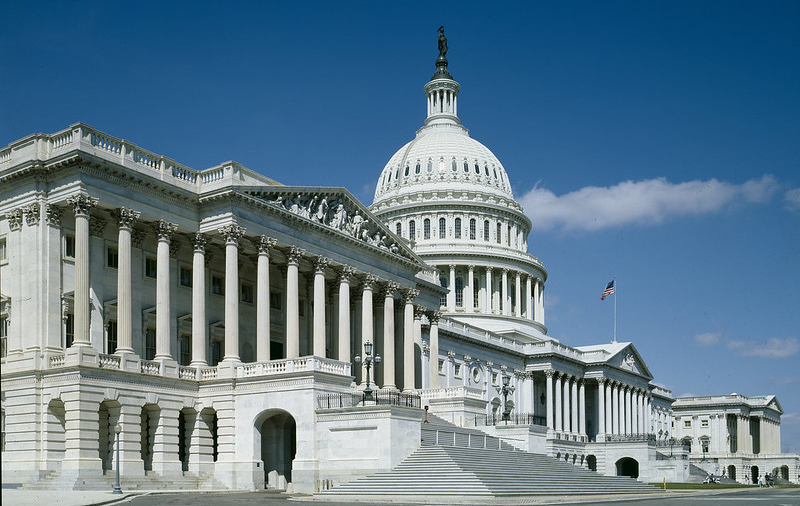A U.S. Congressional spending bill released this week includes language that would likely shut down widespread distribution of unregulated intoxicating hemp products – perhaps before the end of the year.
The bill, which covers 2025 appropriations for farming, the U.S. Food and Drug Administration (FDA) and various other agencies, includes language similar to that proposed for the upcoming U.S. Farm Bill that would rein in delta-8 THC and other psychoactive hemp-derived substances which proliferated as a result of a loophole in the 2018 Farm Bill. A booming gray market has developed for the products, which are marketed as an alternative to marijuana.
The spending measure emerged from a meeting of the House Appropriations Subcommittee for the Agriculture, Rural Development, FDA and Related Agencies, which voted late yesterday to move the bill to a full markup review. The review includes final debate ahead of a committee vote on whether to recommend the bill for consideration by the full House of Representatives.
Farm Bill languishes
The next Farm Bill, originally the 2023 version of the five-year legislation that has been delayed, is not expected to be finalized until the end of this year or the beginning of next. The spending bill that came out of the committee yesterday would speed up a crackdown on the products because there is strong incentive for Congress to act on the appropriations before the new fiscal year begins on Oct. 1.
Most of the intoxicating hemp compounds at issue are made by putting hemp-derived CBD through a synthetic process to produce the highly concentrated psychoactive substances. Their effects are similar to those produced by delta-9 THC, the common intoxicant found in marijuana. Products containing the substances, which are known among consumers as “diet weed,” “marijuana light,” or “gas station pot,” are sold in the form of gummies and other edible treats, often in bright packaging that appeals to youth. They are widely available to consumers young and old in convenience stores, bodegas, hemp shops and other common retail outlets.
In the absence of federal laws or rules to govern the hemp intoxicants, states throughout the U.S. are working to crack down on a runaway market for products that contain them, citing safety concerns. Recreational and medical marijuana stakeholders have piled on, arguing the hemp intoxicants represent unfair competition because they are not burdened by rules and fees in states that have legal marijuana markets.
Gaping loophole
Provisions in the appropriations bill that emerged this week would close a loophole in 2018 Farm Bill provisions on hemp by distinguishing between plants grown for flowers to produce cannabinoid extracts from which the intoxicating hemp substances are derived, and the more traditional “industrial hemp,” which includes crops farmed for food in the form of grain, and those grown for the plant’s valuable fibers.
By contrast, language in the landmark 2018 Farm Bill set out a unified, all-inclusive definition for industrial hemp as “any part of that plant, including the seeds thereof and all derivatives, extracts, cannabinoids, isomers, acids, salts, and salts of isomers” – thereby failing to anticipate the emergence of the synthetic intoxicants.
Similar to language offered in what has become known as the “Miller Amendment” to the upcoming Farm Bill, the appropriations bill constrains the definition of hemp to include only naturally occurring, naturally derived cannabinoids, wiping out the lab-made synthetic intoxicants, which take such forms as delta-8 THC – the most popular of the substances – delta-10 THC, THC-O-acetate, HHC, THCP and others. As such, substances “synthesized or manufactured outside of the plant” would no longer meet the definition of legal hemp.
The spending bill also addresses hemp-derived THCA, a precursor to delta-9 THC, which turns into delta-9 when burned.
Unsafe, but worth millions
The FDA has repeatedly warned consumers about hemp-derived intoxicants, noting that the unregulated and therefore often unsafe products may contain harmful chemicals, and should be kept away from children and pets.
Earlier this year, top law enforcement officials from 20 states and the District of Columbia signed on to a bi-partisan letter urging Congress to use the upcoming Farm Bill to address the spread of the intoxicating hemp products, saying they present “a significant threat to public health and safety . . . benefiting unregulated, untaxed, and unaccountable market actors.”
After over-the-counter CBD extract health aids boomed and then busted beginning in 2019, companies left holding backlog CBD stocks started selling them to the dodgy producers of the psychoactive compounds, spawning a multi-billion dollar market across the U.S.

